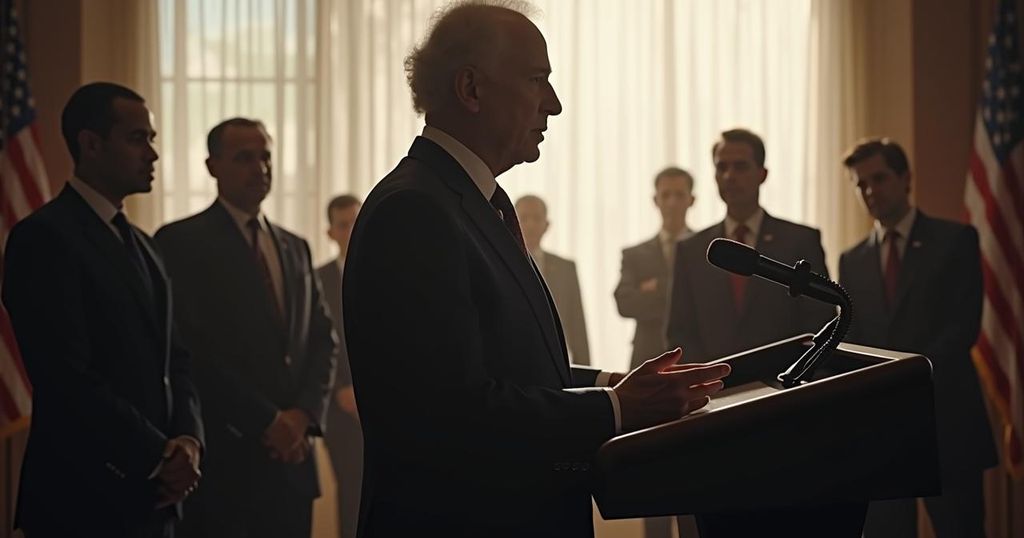President Joe Biden made his first appearance in the White House briefing room, warning of potential violence in the upcoming election. He expressed confidence in the election’s fairness but highlighted concerns over the acceptance of results by some Republican candidates. His engagement follows a period of limited press interactions, as he accelerates communications ahead of stepping down from the presidency. Notably, Biden’s remarks included humorous moments, reflecting on the complexities of his presidency as the election approaches.
In an unprecedented move, President Joe Biden made his first appearance in the White House briefing room, where he addressed the potential for violence in the upcoming election. This marked a notable shift in the President’s communication approach, as he has been relatively reserved in his press interactions since taking office. During a surprise 15-minute session, Biden expressed confidence in the election being free and fair but voiced concerns regarding its peacefulness, especially in light of former President Donald Trump’s incendiary remarks surrounding election outcomes. “I’m confident it will be free and fair. I don’t know whether it will be peaceful,” President Biden stated. He highlighted the troubling implications of Trump’s actions and words during previous electoral processes, particularly noting the hesitance of certain Republican candidates to accept electoral results. Biden also drew attention to Ohio Senator JD Vance’s lack of commitment to accepting the upcoming election’s outcome, indicating heightened concern about voter reactions and potential unrest. The briefing room was notably sparse during Biden’s appearance; many reporters present redirected their questions toward ongoing conflicts in the Middle East. This shift in Biden’s communication strategy comes as he prepares to depart from the presidency following the cessation of his re-election campaign, as Democratic leaders had urged him to step down due to apprehensions regarding his mental acuity. Despite his relative absence from the press, Biden has recently ramped up his engagements, responding to questions from reporters both before and after his trip to states such as Florida and Georgia. In the briefing, Biden’s tendency for verbal gaffes resurfaced as he erroneously referred to “Hurricane Helena” instead of Hurricane Helene. Furthermore, he caused a brief rise in crude oil prices with an earlier comment about Israel potentially targeting Iranian oil facilities. As Biden concluded his briefing, a reporter inquired about his intentions regarding the presidential race, to which the President humorously replied, “I’m back in!” eliciting laughter from the audience. Ultimately, this event underscores President Biden’s strategic pivot to increased public engagement as he nears the conclusion of his presidency, alongside the broader implications of political rhetoric surrounding elections and their peaceful resolutions.
The context of President Biden’s remarks stems from a growing unease regarding electoral integrity and the potential for violence during elections, particularly influenced by the rhetoric of former President Trump. Biden’s increased press engagement follows a period of limited media interactions, attributed to the political landscape and internal Democratic pressures concerning his re-election viability. This briefing is part of a broader narrative encompassing the importance of addressing election-related tensions as the nation approaches a critical voting season.
President Biden’s inaugural briefing room appearance serves to highlight his concerns regarding the potential for violence in the forthcoming electoral process, a situation exacerbated by divisive political rhetoric. The President’s humorous interactions, alongside his awareness of crucial electoral dynamics, may suggest a recognition of the pressing need for peaceful electoral participation. As he prepares to conclude his term, Biden’s increased visibility may be aimed at mitigating anxieties within the electorate and promoting a sense of democratic stability.
Original Source: nypost.com






